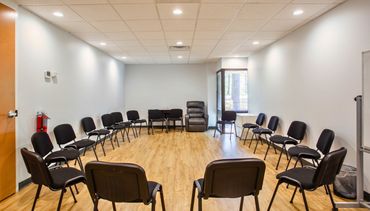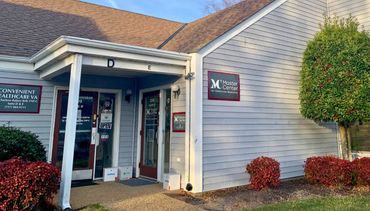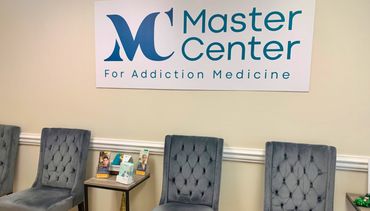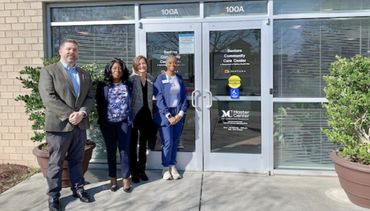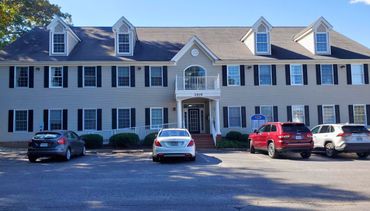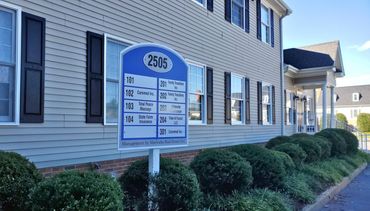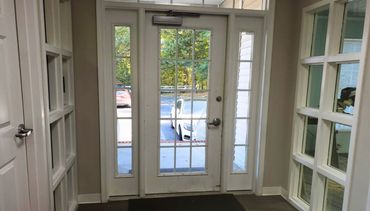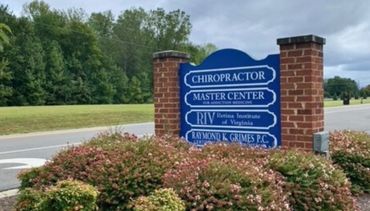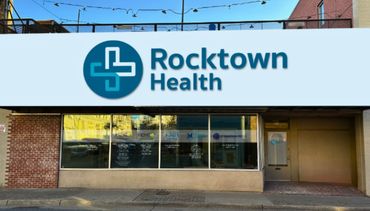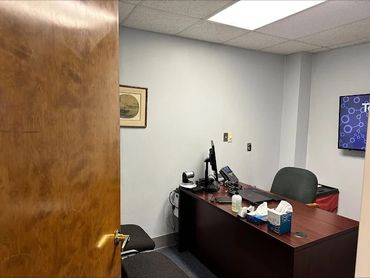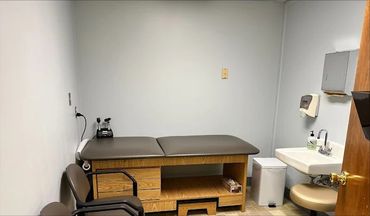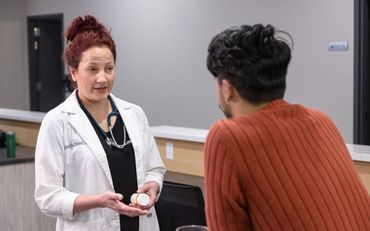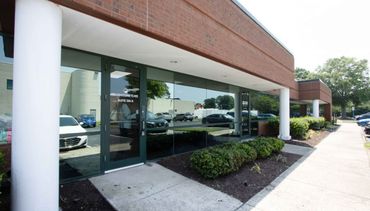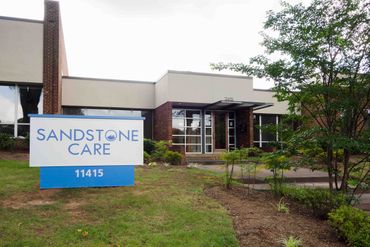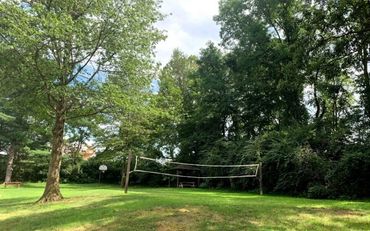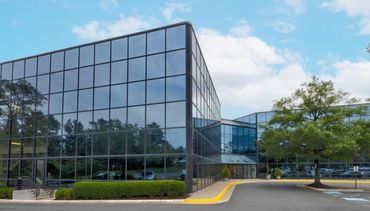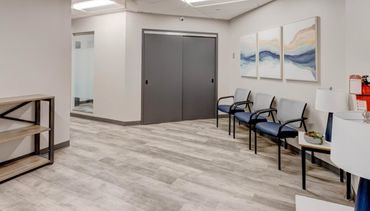
Cognitive Behavioral Therapy (CBT) for Addiction in Virginia
Find Cognitive Behavioral Therapy (CBT) treatment for addiction in Virginia. CBT helps treat addiction by identifying triggers, changing harmful thought patterns, building coping skills, and preventing relapse through improved self-awareness and decision-making. Find CBT treatment centers in Virginia today!
Treatment Centers in Virginia
All Treatment Centers in Virginia
Are You Covered For Treatment?
- Richmond Rehabs
- Winchester Rehabs
- Arlington Rehabs
- Virginia Beach Rehabs
- Williamsburg Rehabs
- Manassas Rehabs
- Roanoke Rehabs
- Lynchburg Rehabs
- Annandale Rehabs
- Petersburg Rehabs
Rehab Insurance Coverage in Virginia
Rehab Centers in Virginia
Information About Rehab in Virginia
Latest Reviews
Latest Reviews of Rehabs in Virginia
Prince William Medical Center
great "Leaders". pretty basic ammenities. This was an Intensive Outpatient Program, so I did not have meals or sleep there or anything
Edgehill Recovery Retreat Center
If I had really put their advice to work, and worked a program, it would have worked (in the short term.) It is still helpful, over the years, to remember some of the things I was told while at Edgehill, and I am now clean and sober.
Intercept True North Health Clinic
The doctors and staff here have been so amazing to my son. He has came such a long way since day one. Thank you guys so much !
About Virginia
Located in the southeastern region of the United States, Virginia has a population of approximately 8.5 million people,1 making it the 12th most populous state in the United States. The state boasts a rich history and diverse geography, with everything from coastal beaches and mountain ranges to sprawling cities and small rural towns.
Virginia is known for its significant role in American history, being home to important landmarks such as Colonial Williamsburg and Mount Vernon. The state is also known for its contributions to American culture, including the development of country music, the emergence of the Virginia wine industry, and its thriving arts and entertainment scene.
Addiction in Virginia
Like many other states in the US, Virginia has been affected by the opioid epidemic, with high rates of overdose deaths and substance use disorders. According to the Virginia Department of Health, an average of 4 Virginians died of an opioid overdose daily in 2020.2 That same year, 2,240 drug overdose deaths were reported. 3
Sadly, overdose fatalities have since increased in Virginia. In 2021, 2,626 drug overdose deaths were confirmed. 3 A report published by the Substance Abuse and Mental Health Services Administration states that 488,000 residents of Virginia had a substance use disorder between 2017 and 2019. 4
Addiction Treatment in Virginia
In Virginia, there are multiple levels of addiction treatment available, including detox, inpatient, and outpatient programs.
- Detox: Detox is typically the first stage of addiction treatment and assists in safely managing the physical withdrawal symptoms that can occur when stopping drug or alcohol use.
- Inpatient Treatment: Inpatient treatment programs offer 24/7 medical and emotional support in a residential setting, allowing individuals to focus on their recovery without outside distractions.
- Outpatient Treatment: Outpatient programs are more flexible and less intensive as they offer similar therapies and support as inpatient programs but allow individuals to continue living at home while receiving treatment.
Many of these programs also offer different types of therapies and specialized treatment programs, such as cognitive-behavioral therapy, trauma-focused therapy, and holistic therapies like yoga and meditation.
Additionally, there are options for luxury rehabs and private rehabs in Virginia. Luxury rehabs offer high-end amenities and services, such as gourmet meals and spa treatments, in a luxurious setting. Private rehabs are typically funded through private insurance or out-of-pocket payments and offer more personalized and individualized care.
You can use our online “find a rehab center” tool to locate a drug and alcohol rehab near you and explore the many treatment and payment options that are available.
How Much Does Rehab Cost?
Insurance typically covers at least part of addiction treatment in Virginia; therefore, you can use your insurance to pay for treatment, but it’s important to contact your insurance provider to determine how much will be covered and what your out-of-pocket costs will be.
If you are uninsured, there are still options for treatment. Virginia offers state-funded treatment centers that provide care to individuals who may not have the financial means to pay for treatment. State-funded treatment centers offer similar services as other addiction treatment programs, but they may have limited availability and longer wait times due to high demand.
In-Network Insurance Options
Length of Stay in Rehab
While there are different options for the length of stay in addiction treatment programs in Virginia, it is important to note that longer stays in treatment have been shown to be associated with higher rates of success in maintaining sobriety. The most common durations are 30-day, 60-day, and 90-day programs. These programs offer different levels of care and support depending on your individual needs.
If you require more intensive treatment and support, long-term rehab may be an option. Long-term rehab programs in Virginia typically last between 6 months to 2 years and provide ongoing care and support to individuals who need more time to address their addiction and related issues. The length of stay in a long-term rehab program will depend on your treatment needs and the specific facility/program you are enrolled in.
Recovery Starts Today
Finding addiction treatment that is right for you is crucial to your success in achieving lifelong recovery. Virginia offers a variety of addiction treatment options, including detox, inpatient and outpatient programs, as well as long-term rehab. It’s important to explore all of your options and work with a treatment provider to determine the best course of action for your individual needs. With the right support and treatment, recovery is possible, and you can begin to live a healthy, fulfilling life free from addiction.
Sources:
- United States Census Bureau. QuickFacts-Virginia. July 1, 2022.
- Virginia Department of Health. Opioid Homepage. December 1, 2021.
- Centers for Disease Control and Prevention. Drug Overdose Mortality by State. 2021.
- Substance Abuse and Mental Health Services Administration. Behavioral Health Barometer: Virginia, Volume 6.



